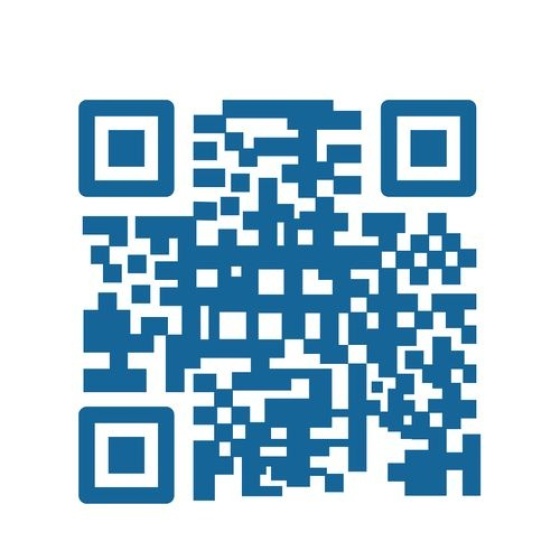RENT 2025 - Meet us at booth D33 to discover our new AI agent!

- Can QR Codes Transform Your Real Estate Strategy?
- Once seen as mere tech gimmicks, these small black-and-white squares have now become essential tools in the marketing arsenal of real estate professionals. Let’s take a closer look.
-
The QR Code that small, seemingly simple square made up of black and white modules actually conceals a remarkable wealth of information. Its use has expanded dramatically in recent years, particularly following the pandemic, which accelerated the adoption of contactless technologies. Consumers, now entirely familiar with this type of interface, readily reach for their smartphones to scan the mysterious codes that have become part of their daily lives.
What Is a QR Code?
QR Code, short for Quick Response Code, is a two-dimensional code instantly readable by any smartphone equipped with a camera. Unlike traditional barcodes, which can only store a string of numbers, a QR Code can contain a vast range of information: text, URLs, contact details, or even geolocation data.
Its mechanism is elegantly simple and it acts as a physical hyperlink, instantly connecting users to a website, product sheet, video, contact form, or any other digital content. This ability to bridge the physical and digital worlds explains its growing popularity among professionals.
One of the QR Code’s greatest strengths lies in its ease of creation and integration. It can be generated in seconds using free online tools and placed on virtually any medium: posters, flyers, signs, business cards, or even clothing. This versatility makes it particularly suitable for the diverse needs of real estate professionals.
Concrete examples highlight this adaptability: access to a restaurant menu, app downloads, automatic Wi-Fi connection, instant contact saving, redirection to social media pages, or access to private photo galleries. This variety of applications illustrates why real estate agencies are increasingly leveraging QR Codes to enhance their traditional marketing materials.
How Are QR Codes Used in Real Estate?
In real estate, QR Codes serve highly relevant purposes that address both professional needs and client expectations. Their use on window displays is among the most common and effective. Strategically placed on property ads, the QR Code allows passersby to instantly access full listings with detailed information, additional photos, and property specifications.
Another particularly smart application is on “For Sale” or “For Rent” signs. Traditionally limited in space, these signs can now link to rich digital content: 360° virtual tours, full property specifications, extended photo galleries, or even direct contact forms with the listing agent. This transforms a simple sign into a powerful interactive tool.
Flyers, business cards, and prospecting mailers also greatly benefit from QR Code integration. These physical media, often constrained by space, can redirect users to unlimited digital content, video presentations of the agency, property portfolios, client testimonials, or personalized property search forms.
This approach saves valuable space on printed materials. There’s no need to cram every detail onto a flyer. The QR Code provides key information in print while giving access to comprehensive digital content. This synergy between physical and digital formats enhances communication efficiency while maintaining clean, readable designs.
A Powerful, Measurable Marketing Tool
QR Codes are a highly effective marketing lever for real estate agencies thanks to their ability to drive qualified traffic to websites or listings. Unlike traditional marketing tools, they establish a direct and measurable link between ad exposure and actual engagement.
One of their key advantages lies in analytics. Professionals can track the number of scans in real time, identify the most effective materials, analyze user locations, and even pinpoint the busiest days and hours. This valuable data helps continuously refine marketing campaigns and adapt strategies based on observed behavior.
They also enable a more subtle and modern approach to lead generation. Instead of intrusive contact forms, QR Codes invite users to engage voluntarily : scanning the code is a clear sign of genuine interest in a property or service. As a result, leads generated this way tend to be more qualified and conversion-ready.
Another major advantage is immediacy. Potential clients can instantly view listings without memorizing URLs, searching for the agency online, or waiting to be back at their computer. This on-demand access aligns perfectly with modern consumer expectations for instant, seamless information.
An Enhanced and Frictionless Customer Experience
Integrating QR Codes into a real estate agency’s marketing strategy fundamentally transforms the client experience by removing traditional barriers to information. Clients can now access comprehensive details effortlessly and no tedious searches or long reference numbers are required.
The use of QR Codes has become second nature for today’s digitally fluent audience. Consumers accustomed to scanning codes in restaurants, public transport, or entertainment venues are comfortable using the same technology to access property information. This widespread adoption simplifies their inclusion in real estate marketing strategies.
Beyond practicality, QR Codes also project a modern, tech-savvy brand image. They signal that the agency is forward-thinking, digitally capable, and committed to innovation with qualities that inspire trust and set it apart from less digitally mature competitors.
Our Top Recommendations
-
Personalize your landing pages. Tailor each QR Code to redirect users to content that fits their context and expectations. A generic page can quickly disappoint prospects, while personalized, relevant content boosts engagement and satisfaction.
-
Test your QR Codes regularly. Make sure every code works, loads quickly, and provides an optimal mobile experience. Regular testing avoids client frustration and protects your professional image.
Conclusion
Far from being a passing tech trend, the QR Code has become a true strategic asset that is simple to deploy, highly efficient, low-cost, and decidedly modern. Its integration into real estate marketing reflects the industry’s ability to embrace innovation and leverage technology to drive business performance.
Ready to transform your client engagement strategy?
Have questions or need real estate coaching? Our teams are here to help — let’s talk. -


